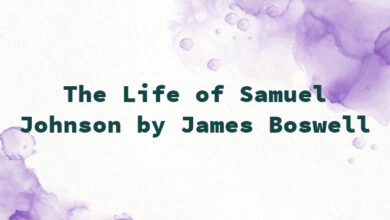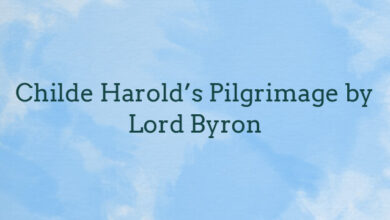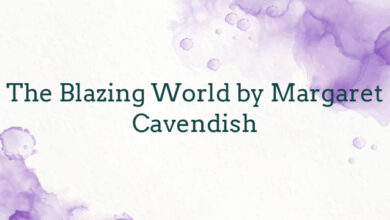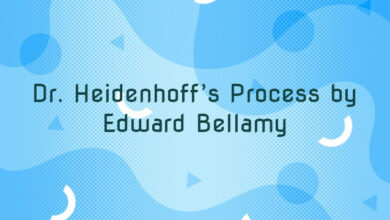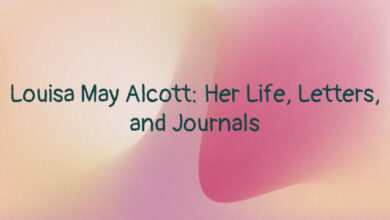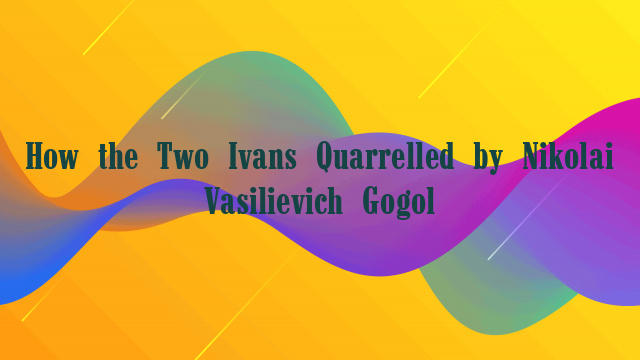
How the Two Ivans Quarrelled by Nikolai Vasilievich Gogol
Chapter III
What Took Place After Ivan Ivanovitchs Quarrel with Ivan Nikiforovitch
And thus two respectable men, the pride and honour of Mirgorod, had quarrelled, and about what? About a bit of nonsense–a goose. They would not see each other, broke off all connection, though hitherto they had been known as the most inseparable friends. Every day Ivan Ivanovitch and Ivan Nikiforovitch had sent to inquire about each other’s health, and often conversed together from their balconies and said such charming things as did the heart good to listen to. On Sundays, Ivan Ivanovitch, in his lambskin pelisse, and Ivan Nikiforovitch, in his cinnamon-coloured nankeen spencer, used to set out for church almost arm in arm; and if Ivan Ivanovitch, who had remarkably sharp eyes, was the first to catch sight of a puddle or any dirt in the street, which sometimes happened in Mirgorod, he always said to Ivan Nikiforovitch, “Look out! don’t put your foot there, it’s dirty.” Ivan Nikiforovitch, on his side, exhibited the same touching tokens of friendship; and whenever he chanced to be standing, always held out his hand to Ivan Ivanovitch with his snuff-box, saying: “Do me the favour!” And what fine managers both were!– And these two friends!– When I heard of it, it struck me like a flash of lightning. For a long time I would not believe it. Ivan Ivanovitch quarrelling with Ivan Nikiforovitch! Such worthy people! What is to be depended upon, then, in this world?
When Ivan Ivanovitch reached home, he remained for some time in a state of strong excitement. He usually went, first of all, to the stable to see whether his mare was eating her hay; for he had a bay mare with a white star on her forehead, and a very pretty little mare she was too; then to feed the turkeys and the little pigs with his own hand, and then to his room, where he either made wooden dishes, for he could make various vessels of wood very tastefully, quite as well as any turner, or read a book printed by Liubia, Garia, and Popoff (Ivan Ivanovitch could never remember the name, because the serving-maid had long before torn off the top part of the title-page while amusing the children), or rested on the balcony. But now he did not betake himself to any of his ordinary occupations. Instead, on encountering Gapka, he at once began to scold her for loitering about without any occupation, though she was carrying groats to the kitchen; flung a stick at a cock which came upon the balcony for his customary treat; and when the dirty little boy, in his little torn blouse, ran up to him and shouted: “Papa, papa! give me a honey-cake,” he threatened him and stamped at him so fiercely that the frightened child fled, God knows whither.
But at last he bethought himself, and began to busy himself about his every-day duties. He dined late, and it was almost night when he lay down to rest on the balcony. A good beet-soup with pigeons, which Gapka had cooked for him, quite drove from his mind the occurrences of the morning. Again Ivan Ivanovitch began to gaze at his belongings with satisfaction. At length his eye rested on the neighbouring yard; and he said to himself, “I have not been to Ivan Nikiforovitch’s to-day: I’ll go there now.” So saying, Ivan Ivanovitch took his stick and his hat, and directed his steps to the street; but scarcely had he passed through the gate than he recollected the quarrel, spit, and turned back. Almost the same thing happened at Ivan Nikiforovitch’s house. Ivan Ivanovitch saw the woman put her foot on the fence, with the intention of climbing over into his yard, when suddenly Ivan Nikiforovitch’s voice was heard crying: “Come back! it won’t do!” But Ivan Ivanovitch found it very tiresome. It is quite possible that these worthy men would have made their peace next day if a certain occurrence in Ivan Nikiforovitch’s house had not destroyed all hopes and poured oil upon the fire of enmity which was ready to die out.
*
On the evening of that very day, Agafya Fedosyevna arrived at Ivan Nikiforovitch’s. Agafya Fedosyevna was not Ivan Nikiforovitch’s relative, nor his sister-in-law, nor even his fellow-godparent. There seemed to be no reason why she should come to him, and he was not particularly glad of her company; still, she came, and lived on him for weeks at a time, and even longer. Then she took possession of the keys and took the management of the whole house into her own hands. This was extremely displeasing to Ivan Nikiforovitch; but he, to his amazement, obeyed her like a child; and although he occasionally attempted to dispute, yet Agafya Fedosyevna always got the better of him.
I must confess that I do not understand why things are so arranged, that women should seize us by the nose as deftly as they do the handle of a teapot. Either their hands are so constructed or else our noses are good for nothing else. And notwithstanding the fact that Ivan Nikiforovitch’s nose somewhat resembled a plum, she grasped that nose and led him about after her like a dog. He even, in her presence, involuntarily altered his ordinary manner of life.
Agafya Fedosyevna wore a cap on her head, and a coffee-coloured cloak with yellow flowers and had three warts on her nose. Her figure was like a cask, and it would have been as hard to tell where to look for her waist as for her to see her nose without a mirror. Her feet were small and shaped like two cushions. She talked scandal, ate boiled beet-soup in the morning, and swore extremely; and amidst all these various occupations her countenance never for one instant changed its expression, which phenomenon, as a rule, women alone are capable of displaying.
As soon as she arrived, everything went wrong.
“Ivan Nikiforovitch, don’t you make peace with him, nor ask his forgiveness; he wants to ruin you; that’s the kind of man he is! you don’t know him yet!” That cursed woman whispered and whispered, and managed so that Ivan Nikiforovitch would not even hear Ivan Ivanovitch mentioned.
Everything assumed another aspect. If his neighbour’s dog ran into the yard, it was beaten within an inch of its life; the children, who climbed over the fence, were sent back with howls, their little shirts stripped up, and marks of a switch behind. Even the old woman, when Ivan Ivanovitch ventured to ask her about something, did something so insulting that Ivan Ivanovitch, being an extremely delicate man, only spit, and muttered, “What a nasty woman! even worse than her master!”
Finally, as a climax to all the insults, his hated neighbour built a goose-shed right against his fence at the spot where they usually climbed over, as if with the express intention of redoubling the insult. This shed, so hateful to Ivan Ivanovitch, was constructed with diabolical swiftness–in one day.
This aroused wrath and a desire for revenge in Ivan Ivanovitch. He showed no signs of bitterness, in spite of the fact that the shed encroached on his land; but his heart beat so violently that it was extremely difficult for him to preserve his calm appearance.
He passed the day in this manner. Night came– Oh, if I were a painter, how magnificently I would depict the night’s charms! I would describe how all Mirgorod sleeps; how steadily the myriads of stars gaze down upon it; how the apparent quiet is filled far and near with the barking of dogs; how the love-sick sacristan steals past them, and scales the fence with knightly fearlessness; how the white walls of the houses, bathed in the moonlight, grow whiter still, the overhanging trees darker; how the shadows of the trees fall blacker, the flowers and the silent grass become more fragrant, and the crickets, unharmonious cavaliers of the night, strike up their rattling song in friendly fashion on all sides. I would describe how, in one of the little, low-roofed, clay houses, the black-browed village maid, tossing on her lonely couch, dreams with heaving bosom of some hussar’s spurs and moustache, and how the moonlight smiles upon her cheeks. I would describe how the black shadows of the bats flit along the white road before they alight upon the white chimneys of the cottages.
But it would hardly be within my power to depict Ivan Ivanovitch as he crept out that night, saw in hand; or the various emotions written on his countenance! Quietly, most quietly, he crawled along and climbed upon the goose-shed. Ivan Nikiforovitch’s dogs knew nothing, as yet, of the quarrel between them; and so they permitted him, as an old friend, to enter the shed, which rested upon four oaken posts. Creeping up to the nearest post he applied his saw and began to cut. The noise produced by the saw caused him to glance about him every moment, but the recollection of the insult restored his courage. The first post was sawed through. Ivan Ivanovitch began upon the next. His eyes burned and he saw nothing for terror.
All at once he uttered an exclamation and became petrified with fear. A ghost appeared to him; but he speedily recovered himself on perceiving that it was a goose, thrusting its neck out at him. Ivan Ivanovitch spit with vexation and proceeded with his work. The second post was sawed through; the building trembled. His heart beat so violently when he began on the third, that he had to stop several times. The post was more than half sawed through when the frail building quivered violently.
Ivan Ivanovitch had barely time to spring back when it came down with a crash. Seizing his saw, he ran home in the greatest terror and flung himself upon his bed, without having sufficient courage to peep from the window at the consequences of his terrible deed. It seemed to him as though Ivan Nikiforovitch’s entire household–the old woman, Ivan Nikiforovitch, the boy in the endless coat, all with sticks, and led by Agafya Fedosyevna–were coming to tear down and destroy his house.
Ivan Ivanovitch passed the whole of the following day in a perfect fever. It seemed to him that his detested neighbour would set fire to his house at least in revenge for this; and so he gave orders to Gapka to keep a constant lookout, everywhere, and see whether dry straw were laid against it anywhere. Finally, in order to forestall Ivan Nikiforovitch, he determined to enter a complaint against him before the district judge of Mirgorod. In what it consisted can be learned from the following chapter.
Chapter IV
What Took Place Before The District Judge of Mirgorod
A wonderful town is Mirgorod! How many buildings are there with straw, rush, and even wooden roofs! On the right is a street, on the left a street, and fine fences everywhere. Over them twine hop-vines, upon them hang pots; from behind them the sunflowers show their sun-like heads, poppies blush, fat pumpkins peep; all is luxury itself! The fence is invariably garnished with articles which render it still more picturesque: woman’s widespread undergarments of checked woollen stuff, shirts, or trousers. There is no such thing as theft or rascality in Mirgorod, so everybody hangs upon his fence whatever strikes his fancy. If you go on to the square, you will surely stop and admire the view: such a wonderful pool is there! The finest you ever saw. It occupies nearly the whole of the square. A truly magnificent pool! The houses and cottages, which at a distance might be mistaken for hayricks, stand around it, lost in admiration of its beauty.
But I agree with those who think that there is no better house than that of the district judge. Whether it is of oak or birch is nothing to the point; but it has, my dear sirs, eight windows! eight windows in a row, looking directly on the square and upon that watery expanse which I have just mentioned, and which the chief of police calls a lake. It alone is painted the colour of granite. All the other houses in Mirgorod are merely whitewashed. Its roof is of wood, and would have been even painted red, had not the government clerks eaten the oil which had been prepared for that purpose, as it happened during a fast; and so the roof remained unpainted. Towards the square projects a porch, which the chickens frequently visit, because that porch is nearly always strewn with grain or something edible, not intentionally, but through the carelessness of visitors.
The house is divided into two parts: one of which is the court-room; the other the jail. In the half which contains the court-room are two neat, whitewashed rooms, the front one for clients, the other having a table adorned with ink-spots, and with a looking-glass upon it, and four oak chairs with tall backs; whilst along the wall stand iron-bound chests, in which are preserved bundles of papers relating to district law-suits. Upon one of the chests stood at that time a pair of boots, polished with wax.
The court had been open since morning. The judge, a rather stout man, though thinner than Ivan Nikiforovitch, with a good-natured face, a greasy dressing-gown, a pipe, and a cup of tea, was conversing with the clerk of the court.
The judge’s lips were directly under his nose, so that he could snuff his upper lip as much as he liked. It served him instead of a snuff-box, for the snuff intended for his nose almost always lodged upon it. So the judge was talking with the assistant. A barefooted girl stood holding a tray with cups at once side of them. At the end of the table, the secretary was reading the decision in some case, but in such a mournful and monotonous voice that the condemned man himself would have fallen asleep while listening to it. The judge, no doubt, would have been the first to do so had he not entered into an engrossing conversation while it was going on.
“I expressly tried to find out,” said the judge, sipping his already cold tea from the cup, “how they manage to sing so well. I had a splendid thrush two years ago. Well, all of a sudden he was completely done for, and began to sing, God knows what! He got worse and worse and worse and worse as time went on; he began to rattle and get hoarse–just good for nothing! And this is how it happened: a little lump, not so big as a pea, had come under his throat. It was only necessary to prick that little swelling with a needle–Zachar Prokofievitch taught me that; and, if you like, I’ll just tell you how it was. I went to him–“
“Shall I read another, Demyan Demyanovitch?” broke in the secretary, who had not been reading for several minutes.
“Have you finished already? Only think how quickly! And I did not hear a word of it! Where is it? Give it me and I’ll sign it. What else have you there?”
“The case of Cossack Bokitok for stealing a cow.”
“Very good; read it!– Yes, so I went to him–I can even tell you in detail how he entertained me. There was vodka, and dried sturgeon, excellent! Yes, not our sturgeon,” there the judge smacked his tongue and smiled, upon which his nose took a sniff at its usual snuff-box, “such as our Mirgorod shops sell us. I ate no herrings, for, as you know, they give me heart-burn; but I tasted the caviare–very fine caviare, too! There’s no doubt it, excellent! Then I drank some peach-brandy, real gentian. There was saffron-brandy also; but, as you know, I never take that. You see, it was all very good. In the first place, to whet your appetite, as they say, and then to satisfy it– Ah! speak of an angel,” exclaimed the judge, all at once, catching sight of Ivan Ivanovitch as he entered.
“God be with us! I wish you a good-morning,” said Ivan Ivanovitch, bowing all round with his usual politeness. How well he understood the art of fascinating everybody in his manner! I never beheld such refinement. He knew his own worth quite well, and therefore looked for universal respect as his due. The judge himself handed Ivan Ivanovitch a chair; and his nose inhaled all the snuff resting on his upper lip, which, with him, was always a sign of great pleasure.
“What will you take, Ivan Ivanovitch?” he inquired: “will you have a cup of tea?”
“No, much obliged,” replied Ivan Ivanovitch, as he bowed and seated himself.
“Do me the favour–one little cup,” repeated the judge.
“No, thank you; much obliged for your hospitality,” replied Ivan Ivanovitch, and rose, bowed, and sat down again.
“Just one little cup,” repeated the judge.
“No, do not trouble yourself, Demyan Demyanovitch.” Whereupon Ivan Ivanovitch again rose, bowed, and sat down.
“A little cup!”
“Very well, then, just a little cup,” said Ivan Ivanovitch, and reached out his hand to the tray. Heavens! What a height of refinement there was in that man! It is impossible to describe what a pleasant impression such manners produce!
“Will you not have another cup?”
“I thank you sincerely,” answered Ivan Ivanovitch, turning his cup upside down upon the tray and bowing.
“Do me the favour, Ivan Ivanovitch.”
“I cannot; much obliged.” Thereupon Ivan Ivanovitch bowed and sat down.
“Ivan Ivanovitch, for the sake of our friendship, just one little cup!”
“No: I am extremely indebted for your hospitality.” So saying, Ivan Ivanovitch bowed and seated himself.
“Only a cup, one little cup!”
Ivan Ivanovitch put his hand out to the tray and took a cup. Oh, the deuce! How can a man contrive to support his dignity!
“Demyan Demyanovitch,” said Ivan Ivanovitch, swallowing the last drain, “I have pressing business with you; I want to enter a complaint.”
Then Ivan Ivanovitch set down his cup, and drew from his pocket a sheet of stamped paper, written over. “A complaint against my enemy, my declared enemy.”
“And who is that?”
“Ivan Nikiforovitch Dovgotchkun.”
At these words, the judge nearly fell off his chair. “What do you say?” he exclaimed, clasping his hands; “Ivan Ivanovitch, is this you?”
“You see yourself that it is I.”
“The Lord and all the saints be with you! What! You! Ivan Ivanovitch! you have fallen out with Ivan Nikiforovitch! Is it your mouth which says that? Repeat it! Is not some one hid behind you who is speaking instead of you?”
“What is there incredible about it? I can’t endure the sight of him: he has done me a deadly injury–he has insulted my honour.”
“Holy Trinity! How am I to believe my mother now? Why, every day, when I quarrel with my sister, the old woman says, ‘Children, you live together like dogs. If you would only take pattern by Ivan Ivanovitch and Ivan Nikiforovitch, they are friends indeed! such friends! such worthy people!’ There you are with your friend! Tell me what this is about. How is it?”
“It is a delicate business, Demyan Demyanovitch; it is impossible to relate it in words: be pleased rather to read my plaint. Here, take it by this side; it is more convenient.”
“Read it, Taras Tikhonovitch,” said the judge, turning to the secretary.
Taras Tikhonovitch took the plaint; and blowing his nose, as all district judges’ secretaries blow their noses, with the assistance of two fingers, he began to read:–
“From the nobleman and landed proprietor of the Mirgorod District, Ivan Pererepenko, son of Ivan, a plaint: concerning which the following points are to be noted:–
“1. Ivan Dovgotchkun, son of Nikifor, nobleman, known to all the world for his godless acts, which inspire disgust, and in lawlessness exceed all bounds, on the seventh day of July of this year 1810, inflicted upon me a deadly insult, touching my personal honour, and likewise tending to the humiliation and confusion of my rank and family. The said nobleman, of repulsive aspect, has also a pugnacious disposition, and is full to overflowing with blasphemy and quarrelsome words.”
Here the reader paused for an instant to blow his nose again; but the judge folded his hands in approbation and murmured to himself, “What a ready pen! Lord! how this man does write!”
Ivan Ivanovitch requested that the reading might proceed, and Taras Tikhonovitch went on:–
“The said Ivan Dovgotchkun, son of Nikifor, when I went to him with a friendly proposition, called me publicly by an epithet insulting and injurious to my honour, namely, a goose, whereas it is known to the whole district of Mirgorod, that I never was named after that disgusting creature, and have no intention of ever being named after it. The proof of my noble extraction is that, in the baptismal register to be found in the Church of the Three Bishops, the day of my birth, and likewise the fact of my baptism, are inscribed. But a goose, as is well known to every one who has any knowledge of science, cannot be inscribed in the baptismal register; for a goose is not a man but a fowl; which, likewise, is sufficiently well known even to persons who have not been to college. But the said evil-minded nobleman, being privy to all these facts, affronted me with the aforesaid foul word, for no other purpose than to offer a deadly insult to my rank and station.
“2. And the same impolite and indecent nobleman, moreover, attempted injury to my property, inherited by me from my father, a member of the clerical profession, Ivan Pererepenko, son of Onisieff, of blessed memory, inasmuch that he, contrary to all law, transported directly opposite my porch a goose-shed, which was done with no other intention that to emphasise the insult offered me; for the said shed had, up to that time, stood in a very suitable situation, and was still sufficiently strong. But the loathsome intention of the aforesaid nobleman consisted simply in this: viz., in making me a witness of unpleasant occurrences; for it is well known that no man goes into a shed, much less into a goose-shed, for polite purposes. In the execution of his lawless deed, the two front posts trespassed on my land, received by me during the lifetime of my father, Ivan Pererepenko, son of Onisieff, of blessed memory, beginning at the granary, thence in a straight line to the spot where the women wash the pots.
“3. The above-described nobleman, whose very name and surname inspire thorough disgust, cherishes in his mind a malicious design to burn me in my own house. Which the infallible signs, hereinafter mentioned, fully demonstrate; in the first place, the said wicked nobleman has begun to emerge frequently from his apartments, which he never did formerly on account of his laziness and the disgusting corpulence of his body; in the second place, in his servants’ apartments, adjoining the fence, surrounding my own land, received by me from my father of blessed memory, Ivan Pererepenko, son of Onisieff, a light burns every day, and for a remarkably long period of time, which is also a clear proof of the fact. For hitherto, owing to his repulsive niggardliness, not only the tallow-candle but also the grease-lamp has been extinguished.
“And therefore I pray that the said nobleman, Ivan Dovgotchkun, son of Nikifor, being plainly guilty of incendiarism, of insult to my rank, name, and family, and of illegal appropriation of my property, and, worse than all else, of malicious and deliberate addition to my surname, of the nickname of goose, be condemned by the court, to fine, satisfaction, costs, and damages, and, being chained, be removed to the town jail, and that judgment be rendered upon this, my plaint, immediately and without delay.
“Written and composed by Ivan Pererepenko, son of Ivan, nobleman, and landed proprietor of Mirgorod.”
After the reading of the plaint was concluded, the judge approached Ivanovitch, took him by the button, and began to talk to him after this fashion: “What are you doing, Ivan Ivanovitch? Fear God! throw away that plaint, let it go! may Satan carry it off! Better take Ivan Nikiforovitch by the hand and kiss him, buy some Santurinski or Nikopolski liquor, make a punch, and call me in. We will drink it up together and forget all unpleasantness.”
“No, Demyan Demyanovitch! it’s not that sort of an affair,” said Ivan Ivanovitch, with the dignity which always became him so well; “it is not an affair which can be arranged by a friendly agreement. Farewell! Good-day to you, too, gentlemen,” he continued with the same dignity, turning to them all. “I hope that my plaint will lead to proper action being taken;” and out he went, leaving all present in a state of stupefaction.
The judge sat down without uttering a word; the secretary took a pinch of snuff; the clerks upset some broken fragments of bottles which served for inkstands; and the judge himself, in absence of mind, spread out a puddle of ink upon the table with his finger.
“What do you say to this, Dorofei Trofimovitch?” said the judge, turning to the assistant after a pause.
“I’ve nothing to say,” replied the clerk.
“What things do happen!” continued the judge. He had not finished saying this before the door creaked and the front half of Ivan Nikiforovitch presented itself in the court-room; the rest of him remaining in the ante-room. The appearance of Ivan Nikiforovitch, and in court too, seemed so extraordinary that the judge screamed; the secretary stopped reading; one clerk, in his frieze imitation of a dress-coat, took his pen in his lips; and the other swallowed a fly. Even the constable on duty and the watchman, a discharged soldier who up to that moment had stood by the door scratching about his dirty tunic, with chevrons on its arm, dropped his jaw and trod on some one’s foot.
“What chance brings you here? How is your health, Ivan Nikiforovitch?”
But Ivan Nikiforovitch was neither dead nor alive; for he was stuck fast in the door, and could not take a step either forwards or backwards. In vain did the judge shout into the ante-room that some one there should push Ivan Nikiforovitch forward into the court-room. In the ante-room there was only one old woman with a petition, who, in spite of all the efforts of her bony hands, could accomplish nothing. Then one of the clerks, with thick lips, a thick nose, eyes which looked askance and intoxicated, broad shoulders, and ragged elbows, approached the front half of Ivan Nikiforovitch, crossed his hands for him as though he had been a child, and winked at the old soldier, who braced his knee against Ivan Nikiforovitch’s belly, so, in spite of the latter’s piteous moans, he was squeezed out into the ante-room. Then they pulled the bolts, and opened the other half of the door. Meanwhile the clerk and his assistant, breathing hard with their friendly exertions, exhaled such a strong odour that the court-room seemed temporarily turned into a drinking-room.
“Are you hurt, Ivan Nikiforovitch? I will tell my mother to send you a decoction of brandy, with which you need but to rub your back and stomach and all your pains will disappear.”
But Ivan Nikiforovitch dropped into a chair, and could utter no word beyond prolonged oh’s. Finally, in a faint and barely audible voice from fatigue, he exclaimed, “Wouldn’t you like some?” and drawing his snuff-box from his pocket, added, “Help yourself, if you please.”
“Very glad to see you,” replied the judge; “but I cannot conceive what made you put yourself to so much trouble, and favour us with so unexpected an honour.”
“A plaint!” Ivan Nikiforovitch managed to ejaculate.
“A plaint? What plaint?”
“A complaint . . .” here his asthma entailed a prolonged pause–“Oh! a complaint against that rascal–Ivan Ivanovitch Pererepenko!”
“And you too! Such particular friends! A complaint against such a benevolent man?”
“He’s Satan himself!” ejaculated Ivan Nikiforovitch abruptly.
The judge crossed himself.
“Take my plaint, and read it.”
“There is nothing to be done. Read it, Taras Tikhonovitch,” said the judge, turning to the secretary with an expression of displeasure, which caused his nose to sniff at his upper lip, which generally occurred only as a sign of great enjoyment. This independence on the part of his nose caused the judge still greater vexation. He pulled out his handkerchief, and rubbed off all the snuff from his upper lip in order to punish it for its daring.
The secretary, having gone through the usual performance, which he always indulged in before he began to read, that is to say, blowing his nose without the aid of a pocket-handkerchief, began in his ordinary voice, in the following manner:–
“Ivan Dovgotchkun, son of Nikifor, nobleman of the Mirgorod District, presents a plaint, and begs to call attention to the following points:–
“1. Through his hateful malice and plainly manifested ill-will, the person calling himself a nobleman, Ivan Pererepenko, son of Ivan, perpetrates against me every manner of injury, damage, and like spiteful deeds, which inspire me with terror. Yesterday afternoon, like a brigand and thief, with axes, saws, chisels, and various locksmith’s tools, he came by night into my yard and into my own goose-shed located within it, and with his own hand, and in outrageous manner, destroyed it; for which very illegal and burglarious deed on my side I gave no manner of cause.
“2. The same nobleman Pererepenko has designs upon my life; and on the 7th of last month, cherishing this design in secret, he came to me, and began, in a friendly and insidious manner, to ask of me a gun which was in my chamber, and offered me for it, with the miserliness peculiar to him, many worthless objects, such as a brown sow and two sacks of oats. Divining at that time his criminal intentions, I endeavoured in every way to dissuade him from it: but the said rascal and scoundrel, Ivan Pererepenko, son of Ivan, abused me like a muzhik, and since that time has cherished against me an irreconcilable enmity. His sister was well known to every one as a loose character, and went off with a regiment of chasseurs which was stationed at Mirgorod five years ago; but she inscribed her husband as a peasant. His father and mother too were not law-abiding people, and both were inconceivable drunkards. The afore-mentioned nobleman and robber, Pererepenko, in his beastly and blameworthy actions, goes beyond all his family, and under the guise of piety does the most immoral things. He does not observe the fasts; for on the eve of St. Philip’s this atheist bought a sheep, and next day ordered his mistress, Gapka, to kill it, alleging that he needed tallow for lamps and candles at once.
“Therefore I pray that the said nobleman, a manifest robber, church-thief, and rascal, convicted of plundering and stealing, may be put in irons, and confined in the jail or the government prison, and there, under supervision, deprived of his rank and nobility, well flogged, and banished to forced labour in Siberia, and that he may be commanded to pay damages and costs, and that judgment may be rendered on this my petition.
“To this plaint, Ivan Dovgotchkun, son of Nikifor, noble of the Mirgorod district, has set his hand.”
As soon as the secretary had finished reading, Ivan Nikiforovitch seized his hat and bowed, with the intention of departing.
“Where are you going, Ivan Nikiforovitch?” the judge called after him. “Sit down a little while. Have some tea. Orishko, why are you standing there, you stupid girl, winking at the clerks? Go, bring tea.”
But Ivan Nikiforovitch, in terror at having got so far from home, and at having undergone such a fearful quarantine, made haste to crawl through the door, saying, “Don’t trouble yourself. It is with pleasure that I–” and closed it after him, leaving all present stupefied.
There was nothing to be done. Both plaints were entered; and the affair promised to assume a sufficiently serious aspect when an unforeseen occurrence lent an added interest to it. As the judge was leaving the court in company with the clerk and secretary, and the employees were thrusting into sacks the fowls, eggs, loaves, pies, cracknels, and other odds and ends brought by the plaintiffs–just at that moment a brown sow rushed into the room and snatched, to the amazement of the spectators, neither a pie nor a crust of bread but Ivan Nikiforovitch’s plaint, which lay at the end of the table with its leaves hanging over. Having seized the document, mistress sow ran off so briskly that not one of the clerks or officials could catch her, in spite of the rulers and ink-bottles they hurled after her.
This extraordinary occurrence produced a terrible muddle, for there had not even been a copy taken of the plaint. The judge, that is to say, his secretary and the assistant debated for a long time upon such an unheard-of affair. Finally it was decided to write a report of the matter to the governor, as the investigation of the matter pertained more to the department of the city police. Report No. 389 was despatched to him that same day; and also upon that day there came to light a sufficiently curious explanation, which the reader may learn from the following chapter.
